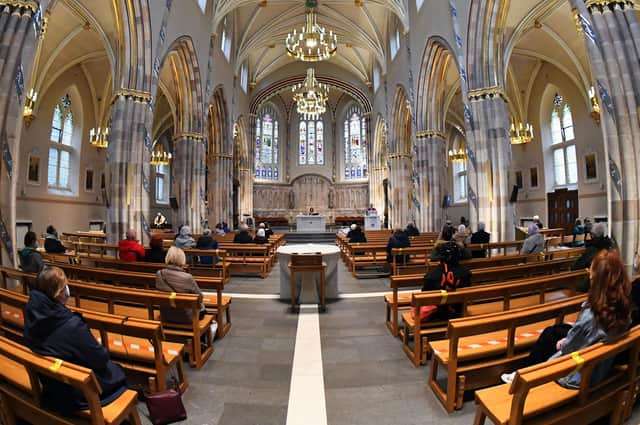Court ruling reinforces an important Easter message - Murdo Fraser


I could not have imagined then that, 12 months later, we would still be facing restrictions due to a Covid pandemic which has been far longer, and more devastating, than many foresaw at the time.
As from last weekend, churches of Scotland are now permitted to reopen, albeit with a cap of 50 on attendances, and with social distancing in place. Whilst for many larger congregations this will go nowhere near allowing normal worship to resume, it is at least a step in the right direction.
Advertisement
Hide AdAdvertisement
Hide AdIn Scotland, and the rest of the UK, we are indeed fortunate compared to many other countries in the world. The remarkable success of our vaccination programme, thanks to the foresight of decisions taken by the British Government last year, means that we are now well on our way towards relaxing restrictions which other countries in Europe can only imagine. It is to be hoped that we might be approaching some degree of normality by the time we get to June, assuming the vaccination programme continues at its current pace.
While the reopening of churches and other places of worship is welcome, there remain concerns about what many see as an unjustified use of State powers to restrict public worship, contrary to human rights. This was a matter considered in the Court of Session last month, when a group of 27 pastors from different denominations challenged the Scottish Government’s right to close the churches.
In a lengthy and carefully considered judgement issued last week, Lord Braid decided that the Scottish Government had overreached its powers. He concluded that the closure of churches for public worship and individual prayer was a disproportionate interference with human rights, and specifically the “freedom of thought, conscience and religion”.
Lord Braid’s judgement repays detailed study. He does not accept that there is an absolute right for public worship to continue in the context of a public health emergency, but concludes that there are other options available to the State to protect public health short of full closure of churches. And he believes that there was not enough evidence that gatherings of individuals in a church building was likely to spread the infection to justify such a draconian approach.
Fundamentally, there is a recognition in the court judgement that the State should not normally be permitted to intrude into the affair of churches, and although the protection of public health is a valid reason for doing so, such a power should only be exercised on a proportionate and necessary basis.
This Easter, there will be many persecuted Christians throughout the world who lack even our freedoms to gather and worship. The fact that a court in Scotland has ruled in this manner might not seem in any way relevant to them, but it is a small step in reinforcing the message that religious freedom is a fundamental human right that should be protected. As we approach another Easter and the celebration of the resurrection of Jesus Christ, that is something which should give us all hope and encouragement.